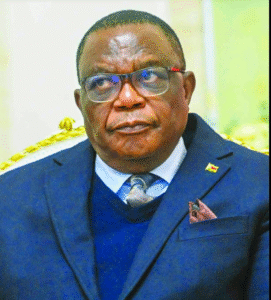ZIMBABWE’S POLITICAL AND LEGAL CRISIS DEEPENS AS COURT ORDER IGNORED IN CCC MP RECALL SAGA
In the tangled web of Zimbabwean politics, a new controversy is unfolding—one that reveals not only the fragility of the country’s opposition but also the ongoing manipulation of democratic institutions by entrenched power structures. At the centre of the storm is Sengezo Tshabangu, a little-known political actor now accused of spearheading a state security-aligned operation to dismantle the Citizens Coalition for Change (CCC) from within. His actions, alongside those of complicit state officials, have once again thrown the independence of Zimbabwe’s judiciary and legislature into serious doubt.
The latest episode involves the highly contentious recall of 18 CCC Members of Parliament and senators, orchestrated by Tshabangu’s faction. Though his camp argues that the recall letters were issued on November 10—before a High Court interdict from Justice Tawanda Chitapi—the actual announcement of the recalls occurred only after the order had been issued. This sequencing raises a fundamental legal and ethical dilemma: can an act so clearly executed after a court’s directive be considered lawful merely because it was initiated earlier?
The answer should be clear. In a constitutional democracy, court orders are binding. The spirit of Chitapi’s ruling was to pause any further political interference through recalls pending a full hearing set for November 20. By moving ahead with the recalls, the Speaker of Parliament, Jacob Mudenda, and Senate President Mabel Chinomona, who acted in defiance of legal advice, effectively undermined the judiciary and cast Zimbabwe further into a crisis of governance.
According to legal sources, Mudenda was explicitly advised by his own lawyer, Shingirai Hoko, to halt the recalls after Chitapi’s ruling was communicated verbally in court. Nonetheless, Parliament moved ahead with the announcement that same afternoon—well after the court’s instruction had taken effect, even though the written order was yet to be served. Legal experts argue this act constitutes contempt of court and could invite serious constitutional consequences.
The CCC, led in court by human rights lawyer Obey Shava, has filed an urgent application challenging the recalls and accusing state institutions of being co-opted into an authoritarian scheme to weaken the opposition. Tshabangu, represented by Lewis Uriri, has yet to produce any substantive proof that he holds authority within the CCC to execute such a sweeping political decision. The opposition argues this entire affair is a Zanu PF-backed effort to exploit internal disputes and secure a two-thirds parliamentary majority ahead of possible constitutional amendments.
Significantly, the recalls were made without any councillors being affected, which may explain why Local Government Minister Winston Chitando, also cited in the case, failed to appear. His absence is telling, suggesting that the motive behind these actions is rooted not in governance or legality but in raw political strategy.
Justice Chitapi’s interim order clearly stated that no recall should be effected pending the court’s full hearing of the matter on November 20. This ruling, now brazenly disregarded, puts Zimbabwe’s democratic institutions under the microscope. If court decisions are to be ignored at will, then what hope remains for legal recourse or democratic redress?
The events unfolding this month are not simply about parliamentary seats or internal party conflict—they are about the survival of democracy itself in Zimbabwe. The collusion between a rogue actor like Tshabangu and the highest echelons of legislative authority is not merely irregular; it is a blueprint for institutional decay.
As the country awaits the outcome of the upcoming court session, the stakes could not be higher. Zimbabwe finds itself at a pivotal moment, where judicial independence, parliamentary integrity, and the sanctity of elections all hang in the balance.
If the courts cannot enforce their own rulings, and if Parliament is allowed to function as an extension of a ruling party’s political strategy, then Zimbabwe’s descent into authoritarianism may be further along than many feared.
The November 20 hearing is not just a legal event—it is a referendum on whether the rule of law still exists in Zimbabwe.



